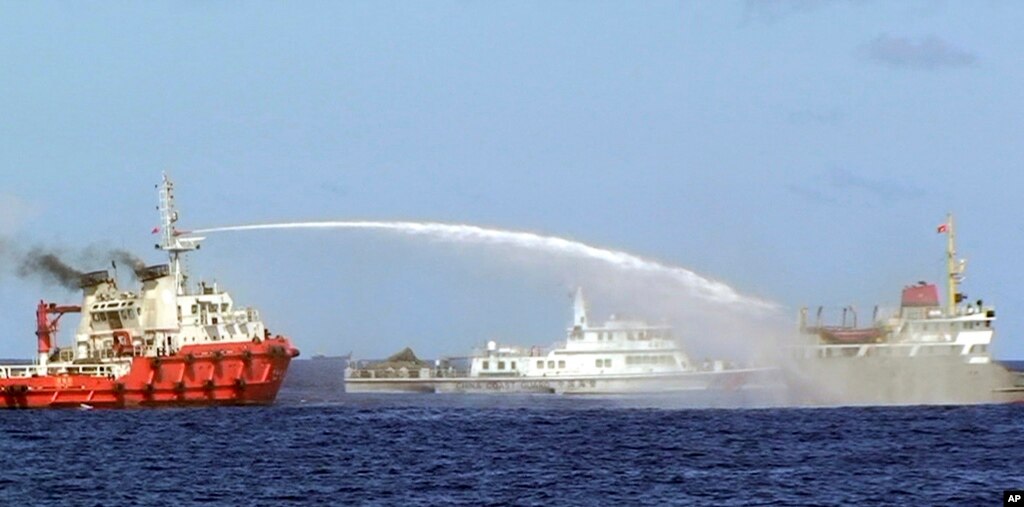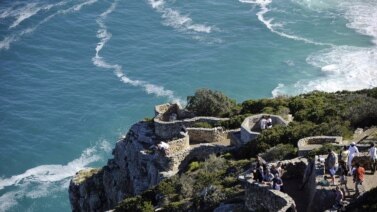
Tension is rising in Vietnam because the country’s dispute with China over a Chinese oil drilling platform. China has set up the machine in disputed waters in the South China Sea. Vietnamese media say the deployment has led to protests across the country. Reporter Marianne Brown is in Vietnam’s capital, Hanoi. Bob Doughty has her story.
Local newspapers say thousands of workers took part in the protests. The demonstrators work at Hong Kong and Taiwanese factories in South Vietnam. They called for China to remove the oil rig from Vietnamese waters.
The newspapers say a hotel at one seaside town refused Chinese travelers. They reported that some Vietnamese are canceling plans to visit China.
Last weekend, hundreds of people demonstrated near the Chinese embassy in Hanoi. Similar protests were reported across Vietnam.

State-controlled media usually provide only a small number of reports about Vietnamese relations with China. But there have been extensive reports on the dispute and the protests this week. David Brown is a Vietnam expert and a former American diplomat. He says the first reports about the oil rig incident seemed more restrained, but then quickly changed.
“This was from a guy at one of the major mainstream papers who said they had been told that they could reprint anything they got from foreigners. But they were supposed to be sort of careful about what they wrote otherwise or what they carried otherwise. That was the first day or so.”
The Vietnamese Communist Party has long noted the economic and political importance of what it calls the East Sea. The sea is believed to be rich in oil and natural gas. China’s state-owned oil rig HD-981 was deployed to an area called Block 143. But that area is not being developed. Carl Thayer is with the Australian Defense Force Academy. He says that among oil industry officials, the area is not considered especially promising.
“Block 143 is not being developed … as simple as that. Vietnam has made little efforts to do so. So in other words, they don’t consider it, they are just arguing to maintain their Exclusive Economic Zone. And if you go to the next block, there are operations going there. And ExxonMobil is a couple of fields away.”
Carl Thayer says the main issue is control of the area, not economic gain. This was the message repeated on local Vietnamese media last weekend. That message tied in with the government’s policy of seeking international support to stop China and avoid military action.
Prime Minister Nguyen Tan Dung released a statement at a meeting of the Association of Southeast Asian Nations. In his words, the “extremely dangerous situation has been and is directly threatening peace, stability and maritime security and safety in the East Sea.”
However, China’s Foreign Ministry this week denied that the South China Sea is a problem between China and ASEAN members. Hua Chunying is a foreign ministry official. She says China has a consensus with ASEAN countries on guaranteeing safety in the area.
I'm Bob Doughty.





